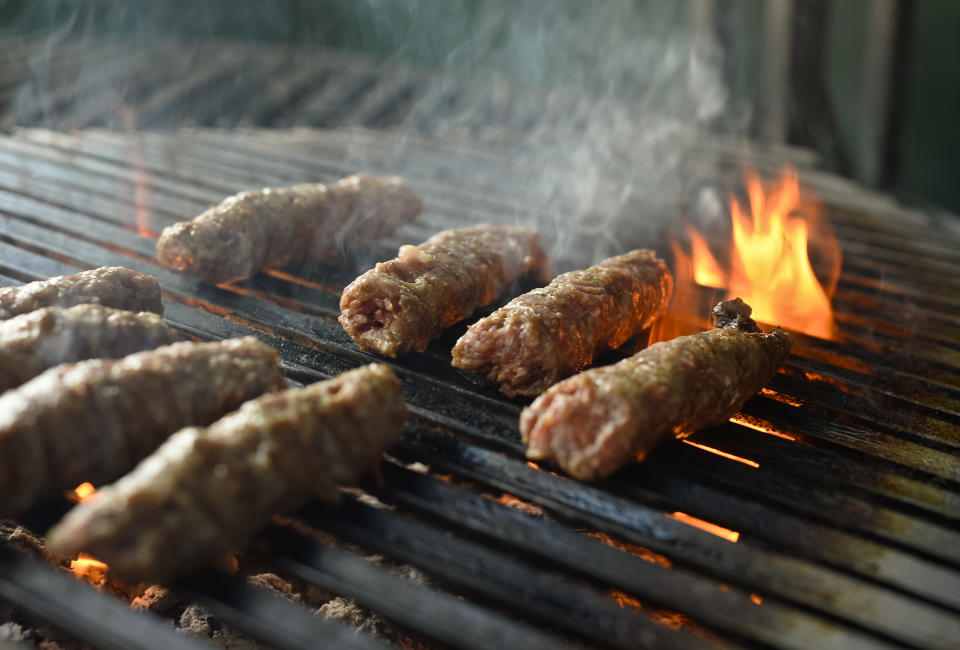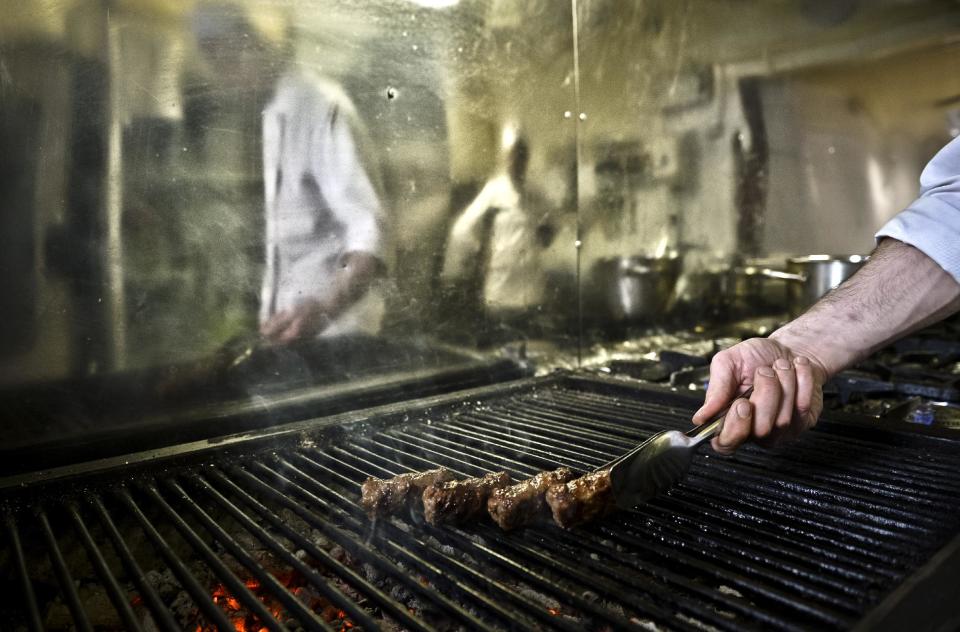Romanian sausage to be saved under new EU rules
MOGOSOAIA, Romania (AP) — Romania's national dish looks like it will be granted a European Union reprieve.
The Romanian Meat Association says officials in Brussels have agreed that bicarbonate of soda, which gives spicy "mici" bullet-shaped grilled meat delicacies their springy texture, will be permitted by the EU.
Romanian food industry officials said Monday they have been lobbying Brussels since a ban last July on mici.
Mici, (pronounced MEECH) originated in Turkey during the days of the Ottoman Empire and are traditionally eaten with mustard and hunks of bread or french fries. Romanians eat 25 tons — or half a million — of the skinless sausages a day.
The EU's food safety committee will vote Thursday on the additive, followed by a vote in the European Parliament. Since the ban, the EU has allowed Romania to continue to produce mici, but not export them pending this week's vote. A culinary staple in the Balkans, other variants such as "cevapcici" — eaten in the former Yugoslavia — and Greece's "soutzoukakia" are also expected to be allowed to contain bicarbonate of soda.
Kevin Hill, a chef who works in Romania, said the EU had been concerned the additive was being used to disguise bad meat.
"It is part of Romania's heritage," said Hill. "It is like fish and chips for England."




